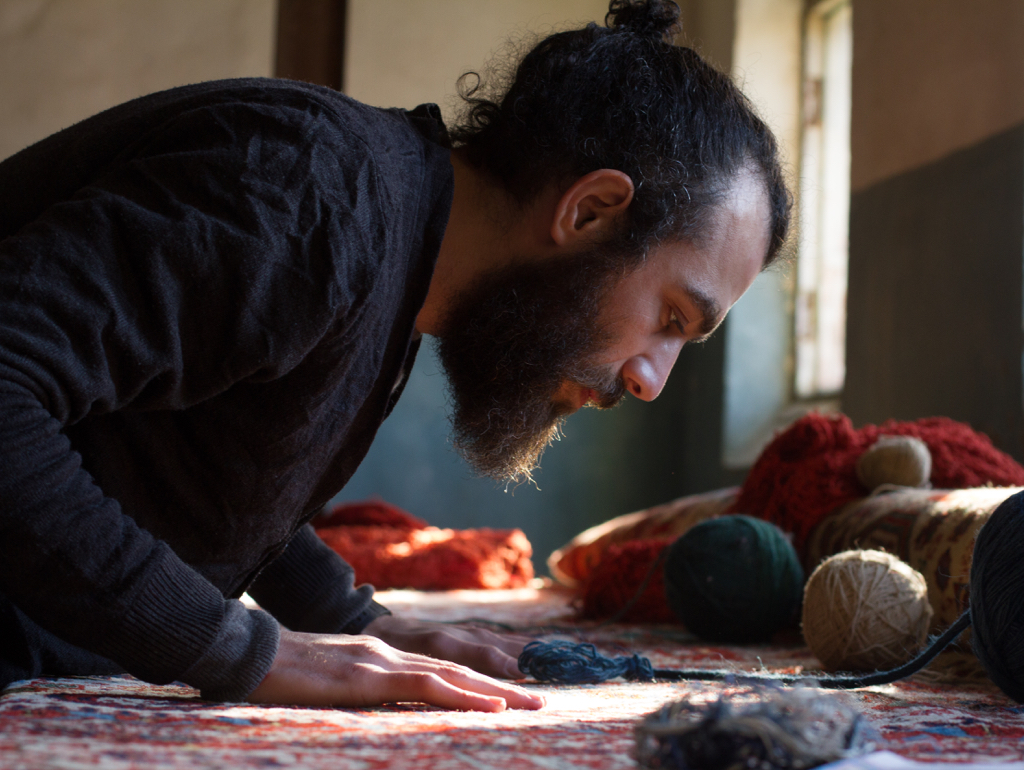MEDIA CONTACTS:
Amelia Thompson: athompson7 gwu [dot] edu (athompson7[at]gwu[dot]edu), 202-994-6460
gwu [dot] edu (athompson7[at]gwu[dot]edu), 202-994-6460
Maralee Csellar: csellar gwu [dot] edu (csellar[at]gwu[dot]edu), 202-994-6460
gwu [dot] edu (csellar[at]gwu[dot]edu), 202-994-6460
WASHINGTON (Oct. 4, 2018)—An exhibition opening Saturday at the George Washington University Museum and The Textile Museum will introduce the creative sources that inspired the latest artwork by acclaimed Azerbaijani artist Faig Ahmed. He drew on his study of historical Shipibo textiles in the museum’s collections, research in the museum’s Arthur D. Jenkins Library and his field research in the Peruvian Amazon. The exhibition will be on view through Dec. 23.
Ahmed is an internationally renowned visual artist from Baku, Azerbaijan. He is known for his conceptual, sculptural artworks that deconstruct ancient weaving traditions. Ahmed represented Azerbaijan at the Venice Biennale in 2007 and 2013, and his works are in public collections across the United States.
Drawing parallels between pattern symbolism in woven textiles from Peru and Azerbaijan, the exhibition presents Ahmed’s new work alongside others he created and studied: including a 20th-century Shibipo skirt from the museum’s collections, a contemporary Azerbaijani rug and Chicago’s Field Museum’s 2011 film about Shipibo communities in southern Peru. One of the largest ethnic groups in the Peruvian Amazon, the Shipibo people paint, weave and embroider geometric designs that they believe can channel therapeutic sounds from the spiritual world.
“Textiles are a language that transcend cultures, generations, and societies,” curator Camille Ann Brewer said. “Ahmed’s artworks engage viewers through a surprising combination of traditional crafts, history, digitally distorted images, three-dimensional shapes, and melting paint that alters the pattern on the rug.”
The museum is piloting a new artist fellowship program, and Ahmed is the first research fellow to participate. The program invites professional visual artists working in the medium of textiles to develop new work informed by primary source research of the museum’s historical collections. This exhibition is the culmination of his time spent in the museum.
Support for this exhibition is provided by the museum’s Fund for Contemporary Textile Art and will be accompanied by public programs, including a free talk by the artist.
Visit the museum’s website for the latest information on exhibitions and educational programs: www.museum.gwu.edu.
-GW-


